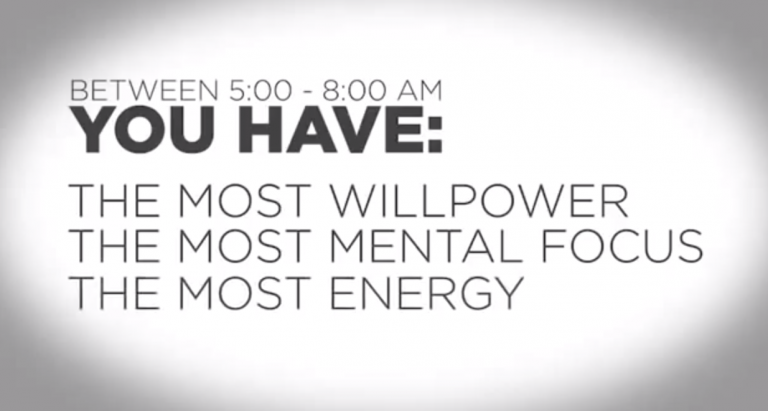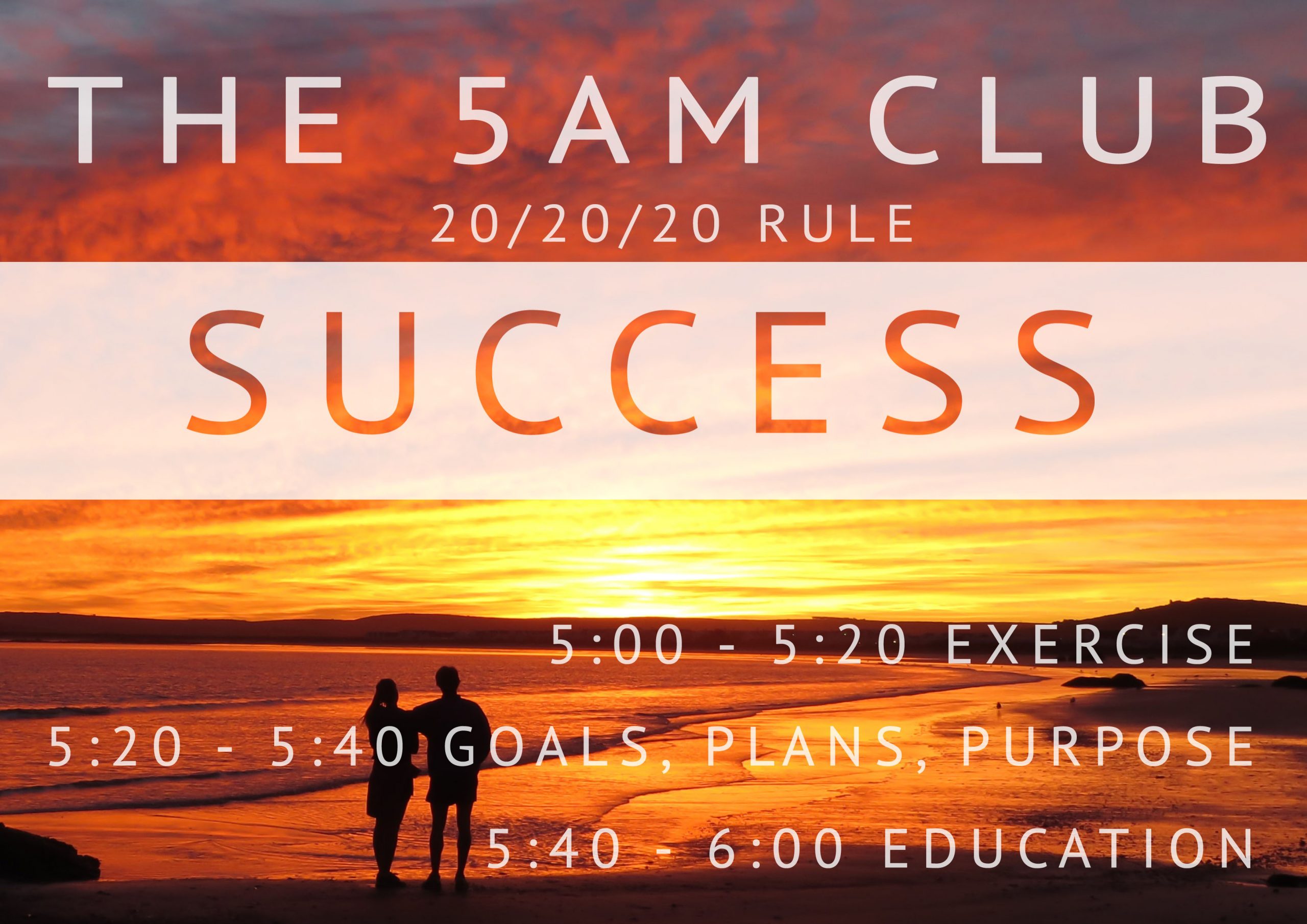All You Need To Know About The 5 AM Club
Some of us prefer to work in the morning, while others during the evening and night. We are used to say that the difference is made my our biorhythm. But what happens when you want to be more productive and have more time on your hands? What is the best formula to help you get forward? According to Psychology Today, several studies have shown that we function best physiologically and psychologically when our internal cycles are well-synchronized with those of the external world. If we mess up our sleep and wake patterns, for example, our mood suffers.
Alertness wanes and concentration falters. Memory gets shoddy. And performance on important tasks takes a dive. You don’t feel coherent, may not even be able to speak coherently. Physical well being suffers too. The immune system is compromised, leading to higher likelihood of a cold or flu. Hormones are in disarray, stomach problems arise. These are common complaints among those doing shift work, experiencing jet lag and suffering insomnia.
In addition to the body rhythms set to the day, there are other body rhythms occurring in cycles of shorter duration, often multiple times during the day. These are known as ultradian rhythms. With these, too, biological and psychological alertness and performance are very strongly correlated to the synchronization of your actions with the body’s natural patterns.
In the last years, there is a new trend and strong movement called “The 5am Club” that is trying to convince people that waking up at 5 am offers you a set of advantages over the rest of the people and, more than that, helps you become a better you.
The 5am Club by Michael Lombardi is a book about how to take advantage of your most productive time of the day, and how to prepare effectively both mentally and physically, to be ready for whatever the day throws your way. According to its writer, starting your day early gives you a leg up on others and gives you time to prepare yourself for your day before you are immersed in it. That quiet time early in the morning is a time to prepare you, body and mind, for a good start. That good start, in turn, gives you the chance to focus on positivity and ensure your day goes the best way possible.
It’s not as easy as setting your alarm for 5am, though. You need to manage your sleep effectively so that getting up so early does not take its toll on you. You need to manage your health, including food and drink intake to keep your body properly fuelled. And in addition, you need to minimize distraction in order to ensure a calm start to your day.
While there are many more personalities talking and writing about the subject,from Jeff Sanders and his 5am Miracle Podcast, and to Sharran Srivatsaa, probably the best known person for promoting the idea of The 5 am is Robin Sharma.

What has The 5 AM Club taught Robin Sharma about creativity and productivity:
1. When attempting to do a towering work that turns the industry on its head, you’ll feel like it’s not good enough, a lot of the time.
2. When you feel like quitting is the time you must commit to continuing.
3. Critics should move out of the way of people trying to get things done.
4. Procrastination is just your fear trying to divert you.
5. Fasting is an amazing practice to elevate your mental clarity, fireproof your energy and save a ton of time [and grocery expenses; joking…a little].
6. There is immense value, as you produce a project that you want to endure for decades, in getting lost from your usual life. You absolutely need to “go dark” so you get into the Flow State of mind that will deliver peak ideas to you. Major parts of The 5 AM Club were written in Rome, Russia, Brazil, Switzerland and Mauritius.
7. Get your creative tools right.
8. On the writing of this book, music was almost always playing as he worked on his craft. Music works to activate your best.
9. Reward yourself.
There is also an app, available in the AppStore.
In Romania, coaching on the subject is done by Dan Luca.
Why you should do it? Here are the main pros of the method:
- Bigger productivity
- More time for exercising, yourself and your loved ones
- Time for eating right and being present, enjoying every minute
- Getting the sleep at the right time when you need it
- Time to be the best at what you do

Online you can find several examples of people that state that starting their day at 5 am has changed their lives for the better. You can start from here, here and here.
Still, there are also plenty of people who believe that this isn’t sustainable on a long run or if you are just not simply cut out for it.
All About Experiential Marketing And Why To Use It
With 77% of marketers that use experiential marketing as a vital part of a brand’s advertising strategy and 98% of users feeling more inclined to purchase after attending an activation,according to EventTrack, while 80% of marketers believe live events are critical for their company’s success and 95% of marketers agreeing that live events provide attendees with a valuable opportunity to form in-person connections in an increasingly digital world,according to Bizzabo, experiential marketing is an area one must be knowing all about and use it as much as possible in 2018.
Multi-sensory experiences allow information to be encoded in multiple areas of the brain, leading to greater memory retention and retrieval.
Here are 2018’s trends in experiential marketing.
According to AdWeek, unlike advertising, experiential can’t be broken down into formatted executions—print, outdoor, radio etc. Experiential is a little more complex, is the art of “expressing a brand’s purpose and proposition through a form of real world consumer interaction.”
“Experiential is an adjective, not a noun, right? It describes a way of marketing that can be limitless in form, idea and environment. Because of this, I’d caution against the labeling of campaigns, which applies to the use of “events,” too. Events are a type of experience, but this shouldn’t be the generic descriptor for a multitude of different live creative activations,” added Sarah Priestman for AdWeek.
Brands are turning to experiential marketing to entice consumers to shop in-store rather than online. These in-store events create unique in-person shopping experiences that keep them engaged at every point while shopping. Many stores, especially beauty brands, are incorporating augmented reality for the in-store experience. The key to experiential retail integration is allowing consumers to forge real-world connections with a brand that isn’t a marketing gimmick.










